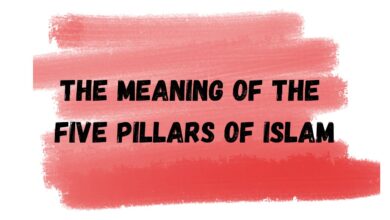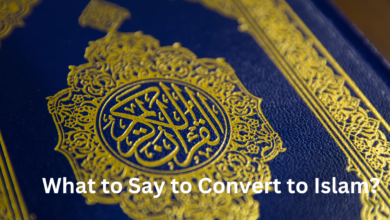
How to Be a Good Muslim?
Decoding Soft Drinks: Halal or Haram? Unveiling the Truth
Is killing a spider considered haram in Islam?
Is Solar Energy Halal or Haram? Islamic Compatibility
Introduction
Being a good Muslim encompasses much more than just performing religious rituals. It involves cultivating a deep connection with Allah, following the teachings of the Quran and the Prophet Muhammad (peace be upon him), and embodying values that promote compassion, humility, and justice. This article aims to outline key principles and practices that contribute to being a good Muslim.
Faith and Belief
The foundation of being a good Muslim lies in the unwavering belief in the oneness of Allah (Tawhid) and the prophethood of Muhammad. This belief forms the core of Islamic faith and serves as a guide for all aspects of life. Regularly reciting the Shahada (the Islamic declaration of faith) and seeking knowledge about the tenets of Islam help reinforce this belief.
Prayer (Salah)
Prayer is a fundamental pillar of Islam and serves as a direct link between a Muslim and Allah. Performing the five daily prayers at their designated times not only demonstrates devotion but also serves as a constant reminder of Allah’s presence. Each prayer offers an opportunity to seek forgiveness, guidance, and blessings.
Charity (Zakat and Sadaqah)
Charity is a significant aspect of being a good Muslim. Paying the obligatory Zakat, a portion of one’s wealth, helps redistribute wealth within the community, while Sadaqah (voluntary charity) fosters empathy and generosity. Contributing to the welfare of others, especially those in need, reflects the compassionate nature of Islam.
Fasting (Sawm)
Fasting during the holy month of Ramadan is a means of self-purification, self-discipline, and spiritual growth. Beyond abstaining from food and drink, Muslims are encouraged to refrain from negative behaviors and thoughts. Fasting nurtures self-control and empathy for those who are less fortunate.
Pilgrimage (Hajj)
For those who are physically and financially able, performing the Hajj pilgrimage is a remarkable manifestation of devotion. It represents unity among Muslims from all corners of the world and serves as a reminder of the transient nature of life on Earth.
Moral and Ethical Conduct
Being a good Muslim involves upholding the highest moral and ethical standards. This includes being truthful, honest, and just in all interactions. Respecting parents, elders, and all members of society, irrespective of their faith or background, is a pivotal Islamic value.
Humility and Gratitude
Humility before Allah and gratitude for His blessings are virtues that a good Muslim seeks to cultivate. Recognizing that all blessings come from Allah encourages believers to remain modest and thankful in times of both ease and difficulty.
Kindness and Compassion
Prophet Muhammad (peace be upon him) emphasized kindness and compassion toward all living beings. Being a good Muslim involves treating others with respect, offering assistance to those in need, and showing empathy to the suffering of others.
Seeking Knowledge
Islam places a strong emphasis on seeking knowledge throughout one’s life. Acquiring both religious and worldly knowledge is not only encouraged but considered an act of worship. Education enables individuals to make informed decisions and contribute positively to society.
Self-Reflection and Repentance
Regularly reflecting on one’s actions, intentions, and behaviors allows for self-improvement. Muslims are encouraged to seek forgiveness through sincere repentance, understanding that everyone is prone to mistakes. This practice fosters personal growth and a stronger connection with Allah.
Upholding Justice
Justice is a core principle in Islam. A good Muslim strives to treat everyone fairly, stand up against oppression, and advocate for justice in all aspects of life. Islam promotes the equality of all individuals regardless of their social status or background.
Patience and Perseverance
Life is full of challenges and tests. Being patient in the face of adversity and persevering through difficulties are qualities that a good Muslim aspires to develop. Trusting in Allah’s wisdom and plan provides strength during tough times.

Conclusion
Being a good Muslim goes beyond rituals; it involves embodying values that promote personal and societal betterment. By nurturing faith, practicing compassion, seeking knowledge, and upholding justice, Muslims can live in accordance with the teachings of Islam. Striving for excellence in both spiritual and moral dimensions leads to a fulfilling life that aligns with the principles set forth by the Quran and the Prophet Muhammad.
Faqs
How To Be a Good Muslim?
Being a good Muslim involves adhering to the teachings and principles of Islam, which include faith, worship, moral behavior, and social responsibilities. It encompasses living a life of piety, compassion, and adherence to the Quran and the Sunnah (the teachings and practices of Prophet Muhammad).
How can I strengthen my faith as a Muslim?
Strengthening your faith involves regular acts of worship such as daily prayers (Salah), recitation of the Quran, and engaging in supplications (Dua). It also includes seeking knowledge about Islam, understanding its core beliefs, and reflecting on the meaning of life and your purpose as a creation of Allah.
What are the Five Pillars of Islam, and why are they important?
The Five Pillars of Islam are the foundation of a Muslim’s faith and practice. They include Shahada (faith declaration), Salah (prayer), Zakat (charity), Sawm (fasting during Ramadan), and Hajj (pilgrimage to Mecca). Following these pillars demonstrates your devotion to Allah and your commitment to the teachings of Islam.
How can I maintain regular prayer (Salah) despite a busy schedule?
Prioritize your prayers by setting a schedule that aligns with your daily routine. Use alarms or reminders if needed. Designate a clean and peaceful space for prayer. Remember that Salah is a means of connection with Allah, offering moments of tranquility amidst a busy life.
What role does the Quran play in being a good Muslim?
The Quran is the holy book of Islam and serves as a guide for every aspect of a Muslim’s life. Reading and reflecting on its verses regularly can provide spiritual guidance, moral lessons, and insight into living a righteous life.
How can I practice charity (Zakat) effectively?
Zakat involves giving a portion of your wealth to those in need. Calculate your Zakat accurately based on your assets and income. Seek out reputable charitable organizations or directly assist individuals who require financial support within your community.
What’s the significance of fasting (Sawm) during Ramadan?
Fasting during Ramadan is a means of self-purification, empathy for the less fortunate, and developing self-discipline. Abstaining from food, drink, and other physical needs from dawn until sunset fosters spiritual growth and a heightened sense of devotion.
How can I fulfill the pilgrimage (Hajj) to Mecca?
Hajj is obligatory for Muslims who are physically and financially able to undertake the journey. Plan and prepare well in advance by learning about the rituals and logistics of Hajj. Follow the prescribed steps and immerse yourself in the spiritual experience of this once-in-a-lifetime journey.
How should I treat others as a good Muslim?
Treat others with kindness, respect, and empathy. Follow the example of Prophet Muhammad in your interactions. Uphold honesty, integrity, and fairness in all dealings. Contribute positively to your family, community, and society at large.
How do I seek forgiveness for my mistakes and sins?
Repentance is key in Islam. Sincerely acknowledge your mistakes, feel remorse, and seek forgiveness from Allah through sincere prayers and supplications. Strive to make amends and avoid repeating those mistakes in the future.





